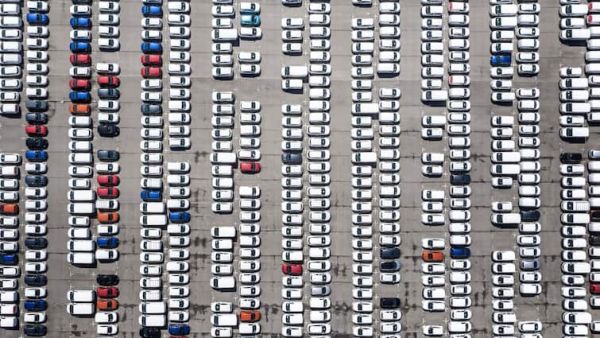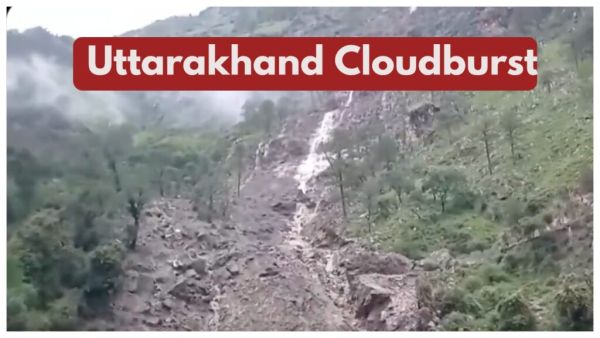
By Abhimanyu Singh
As India's cities grow denser and more populated, one of the most frustrating challenges faced by commuters remains largely unspoken: finding a parking spot. While traffic congestion and pollution are visible symptoms of urban mismanagement, the time wasted in searching for parking is a hidden epidemic affecting millions. From the narrow lanes of Old Delhi to the tech corridors of Bangalore, parking struggles cost Indians valuable time, peace of mind, and productivity.
The Numbers Behind the Problem
A 2018 report by the Boston Consulting Group (BCG), in association with Uber, revealed a startling statistic: on average, drivers in Indian metro cities spend about 20 minutes per trip searching for a parking spot. Considering that most working professionals take at least two vehicular trips daily, this means over 40 minutes of a person’s day is spent simply trying to park.
Let’s put that into perspective:
- 40 minutes/day = 200 minutes/week (5 working days)
- 200 minutes/week = 10,000 minutes/year (~167 hours)
- That translates to nearly 7 full days a year — a week lost just to parking.
What Cities Are Worst Hit?
Cities like Delhi, Mumbai, Bangalore, Chennai, and Pune report the worst parking challenges due to:
- Unplanned urban growth
- Lack of dedicated parking zones
- High vehicular density (Delhi alone has over 1.2 crore registered vehicles as per Ministry of Road Transport and Highways data)
In hotspots like Connaught Place in Delhi, Bandra in Mumbai, or Koramangala in Bangalore, the search for parking can exceed 25–30 minutes during peak hours, especially with illegal encroachments and limited multi-level parking facilities.
A survey conducted by LocalCircles in 2022 among urban Indian residents found that:
- 67% of respondents reported spending over 15 minutes daily looking for parking.
- 88% said parking-related stress affects their mood and time management.
The Ripple Effect: How Parking Wastes More Than Just Time
Vehicles crawling through tight lanes or circling for parking consume more fuel. A report by the Centre for Science and Environment (CSE) revealed that searching for parking contributes to nearly 30% of total urban traffic congestion, leading to higher emissions and a larger carbon footprint.
Repeatedly facing uncertainty, delays, and confrontations over parking adds to daily stress. A study published in the International Journal of Urban Health notes that urban stressors like traffic and parking significantly raise cortisol levels, impacting overall mental well-being. The ResearchGate Urban Stress Survey (2021) also found that urban drivers dealing with regular parking hassles reported 27% higher anxiety and irritability levels.
Whether it’s a business meeting delayed, a customer missed, or a doctor’s appointment skipped, parking delays affect punctuality and performance. For gig workers like delivery agents, cab drivers, or service technicians, the lack of easy parking translates directly into lost income.
Why Is It So Hard to Park in Indian Cities?
- Lack of policy enforcement: Most residential areas lack designated visitor parking. Commercial areas, despite huge footfall, still operate with outdated infrastructure.
- Illegal parking: Auto-rickshaws, delivery vans, and even private cars often park illegally, occupying already scarce space.
- High vehicle ownership: India adds over 2 crore vehicles to its roads annually, with two-wheelers and cars forming the bulk.
Even residential colonies and gated communities are not immune. The rising trend of households owning multiple vehicles without additional parking arrangements further worsens the crisis.
What Are the Solutions?
Some tech-driven solutions are emerging:
- Smart parking apps: Platforms like Park+, Get My Parking, and ParkMate allow users to discover, reserve, and pay for parking spaces digitally.
- Public-private partnerships (PPPs): Cities like Hyderabad and Pune are experimenting with smart meters, app-based ticketing, and automated parking lots.
- Urban reforms: The MoHUA’s Smart Cities Mission encourages the development of multi-level and underground parking, though implementation remains inconsistent.
Globally, cities like Tokyo mandate proof of parking before allowing car purchases. Singapore uses electronic pricing to discourage peak-hour car use. These models could be considered in Indian metros.
While it might seem like a minor inconvenience, the time Indians spend searching for parking is a major urban issue — one that costs citizens days of their lives, adds to pollution, and affects mental health.
As India moves toward smarter, more sustainable cities, parking management must become a priority. Better planning, digital tools, stricter enforcement, and public awareness can help reclaim those lost 7 days — and restore a little peace to our chaotic cities.
(The author is the COO and Co-founder of ParkMate)
Disclaimer: The opinions, beliefs, and views expressed by the various authors and forum participants on this website are personal and do not reflect the opinions, beliefs, and views of ABP Network Pvt. Ltd.
-
DeepSeek R2 launch delayed as CEO remains unsatisfied with progress, says report

-
A painful accident on the cricket field, the batsman broke down as soon as the shot …

-
Legal action on RCB fast bowler Yash Dayal on charges of sexual harassment; Woman pleaded with UP Chief Minister- Report

-
Premier League transfer news: Calvert-Lewin to leave Everton after contract renewal talks fail

-
Uttarakhand Cloudburst – 8 Workers Missing at uttarkashi Hotel Site, Heavy Rain Alert Warning for 7 Districts
